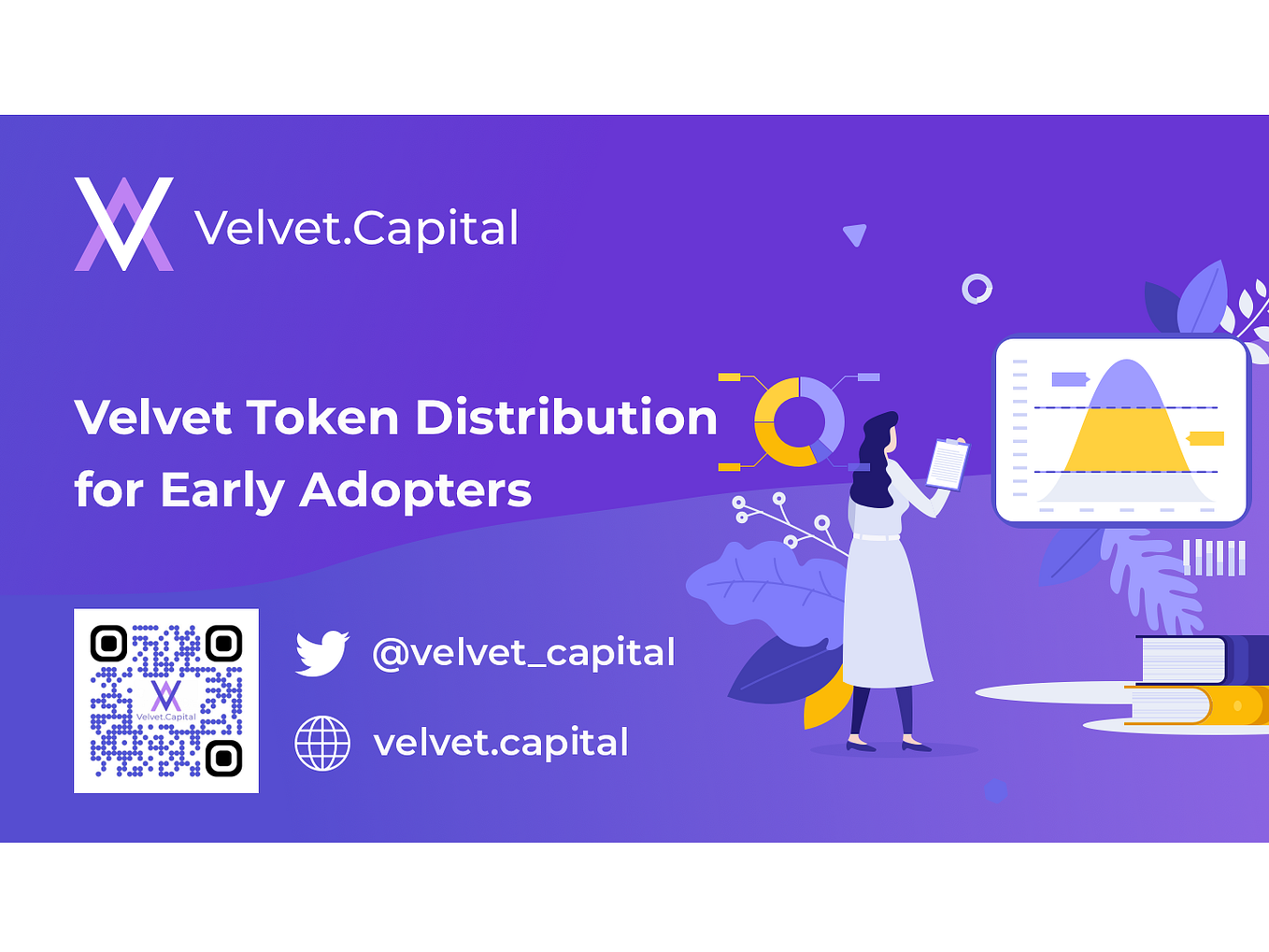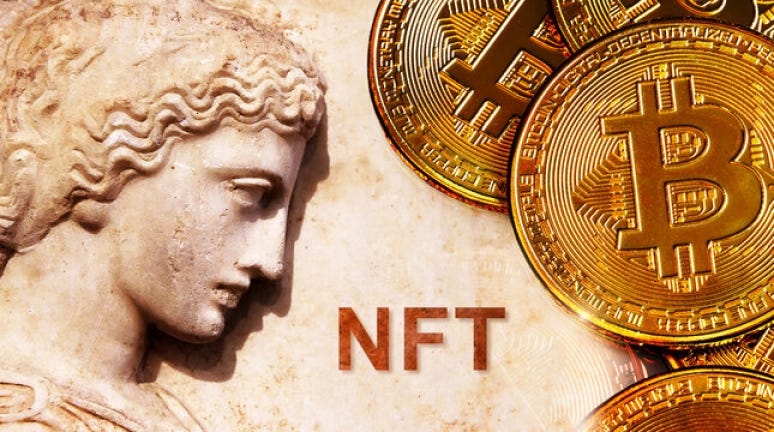Digital Revolution: NFTs Shaping Tomorrow’s Identity Landscape with Digital Passports and Credential
 In the ever-evolving landscape of technology, the concept of identity is undergoing a revolutionary transformation. One of the most intriguing developments in this arena is the integration of non-fungible tokens (NFTs) as digital passports and credentials, coupled with the groundbreaking progress in NFT marketplace development. This blog post will delve into the profound impact of NFTs on digital identity, exploring their role, influence, and potential in shaping the future.
In the ever-evolving landscape of technology, the concept of identity is undergoing a revolutionary transformation. One of the most intriguing developments in this arena is the integration of non-fungible tokens (NFTs) as digital passports and credentials, coupled with the groundbreaking progress in NFT marketplace development. This blog post will delve into the profound impact of NFTs on digital identity, exploring their role, influence, and potential in shaping the future.
Decoding the Essence of Digital Identity
Before we delve into the disruptive force of NFTs, it’s crucial to establish a foundation for understanding digital identity. Digital identity encompasses the unique set of attributes, characteristics, and credentials that define an individual in the virtual realm. It includes personal information, online activities, and various forms of identification used in the digital space.
NFTs: Unleashing a Revolution in Digital Identity
In the rapidly evolving landscape of digital identity, NFTs are emerging as the catalysts of transformation. These non-fungible tokens, known for their uniqueness and tamper-resistant nature, are revolutionizing the way we perceive and manage our digital identities. Let’s explore the various facets of this revolution:
1. Tokenization of Identity
The process of converting real-world identity attributes into digital tokens is gaining momentum. NFTs, known for their uniqueness and indivisibility, offer a secure and tamper-resistant way to tokenize identity elements. This tokenization process creates a digital representation that is both secure and easily transferable, ensuring a seamless integration of identity into the digital landscape.
2. Decentralized Identity Verification
NFTs provide a decentralized approach to identity verification, reducing reliance on centralized authorities. Blockchain technology ensures that identity records stored as NFTs are immutable and transparent, enhancing security and trust. The decentralized nature of identity verification using NFTs not only increases security but also mitigates the risk of a single point of failure, making it a robust solution for the future.
3. Ownership and Control
NFTs empower individuals with ownership and control over their digital identity. Users can selectively share specific attributes without compromising the entirety of their identity, fostering a more privacy-centric approach. This aspect of NFT-based identity solutions is essential in addressing growing concerns about data privacy, giving users the autonomy to manage and control their personal information in the digital realm.
4. Interoperability Across Platforms
NFTs are designed to be interoperable, allowing seamless integration across various platforms and applications. This interoperability enhances the usability and versatility of digital identity, making it more adaptable to evolving technological landscapes. As the digital ecosystem continues to diversify, having an identity solution that can seamlessly navigate across different platforms becomes increasingly vital for users and businesses alike.
5. Combating Identity Theft
The unique cryptographic properties of NFTs make them a robust tool in the fight against identity theft. The decentralized nature of blockchain ensures that unauthorized access and alterations to identity records are nearly impossible. This heightened security feature not only protects individuals from identity theft but also builds trust in digital interactions, creating a more secure online environment.
6. Enhanced Trust and Credibility
The use of NFTs in digital identity establishes a higher level of trust and credibility. The transparency of blockchain ensures that credentials and achievements recorded as NFTs are verifiable and authentic, eliminating doubts about the legitimacy of an individual’s claims. This trust-building aspect is crucial in various sectors, including education, professional certifications, and online transactions, where the authenticity of digital identities is paramount.
Governments Embracing NFTs for Progressive Digital Identity
Governments, traditionally perceived as cautious entities, are now embracing the revolutionary potential of NFTs in shaping progressive digital identity systems. This paradigm shift is not just an evolution in technological infrastructure but a strategic move towards more efficient, secure, and citizen-centric governance. Let’s delve into the ways governments are leveraging NFTs for the progressive evolution of digital identity:
1. Sovereign Identity on Blockchain
Governments are exploring the implementation of sovereign identity systems on blockchain, where each citizen possesses a unique NFT representing their identity. This decentralized approach enhances security and reduces the risk of data breaches. The concept of sovereign identity not only provides individuals with more control over their information but also aligns with the principles of decentralization, giving citizens a greater stake in the management of their digital identities.
2. Streamlining Public Services
NFT-based digital identities enable governments to streamline public services. From healthcare to social welfare, the seamless verification provided by NFTs reduces bureaucratic hurdles and ensures efficient service delivery. The integration of NFTs in public services not only improves efficiency but also opens up possibilities for new and innovative service delivery models, enhancing the overall citizen experience.
3. Transparent Voting Systems
NFTs hold the potential to revolutionize voting systems, introducing transparency and security. By assigning a unique digital identity to each eligible voter, governments can minimize electoral fraud and enhance the integrity of democratic processes. Transparent voting systems using NFTs can bring about a new era of trust in electoral processes, fostering greater confidence in democratic institutions.
4. Border Control and Immigration
NFTs can serve as digital passports, transforming the landscape of border control and immigration. The unique and tamper-resistant nature of NFTs adds an extra layer of security to the verification process. Implementing NFTs in border control not only enhances security measures but also facilitates smoother and faster immigration processes, benefiting both travelers and government agencies.
5. Combating Identity Fraud
Governments leveraging NFTs for digital identity can significantly reduce instances of identity fraud. The cryptographic properties of NFTs make them highly resistant to tampering or forgery, ensuring the authenticity of citizens’ identities. This proactive approach to combating identity fraud not only protects individuals but also strengthens the overall security of national identity systems.
6. Empowering Citizens
NFT-based digital identity systems empower citizens by giving them control over their personal information. Citizens can choose what information to share and with whom, fostering a more privacy-centric relationship between the government and its constituents. This empowerment of citizens contributes to a more informed and engaged society, where individuals actively participate in shaping the landscape of their digital interactions.
Paving the Path Forward: NFT-Based Identity Systems
As we look ahead, it’s evident that NFTs are poised to play a pivotal role in shaping the future of digital identity and NFT marketplace development. This section explores the initiatives and developments that are contributing to the establishment of NFT-based identity systems.
1. Collaborations with Tech Giants
Tech giants are actively exploring collaborations with blockchain and NFT projects to integrate digital identity solutions. These partnerships aim to create seamless and universally accepted NFT-based identity standards. Collaborations with industry leaders not only drive innovation but also contribute to the widespread adoption of NFT-based identity solutions, making them more accessible to a global audience.
2. Integration with Existing Platforms
Existing platforms, from social media networks to financial institutions, are considering the integration of NFT-based identity systems. This integration would provide users with a unified and secure digital identity across various services. The seamless integration with existing platforms ensures a smoother transition to NFT-based identity solutions, minimizing disruptions and providing users with a familiar and user-friendly experience.
3. Education and Awareness Campaigns
Initiatives focusing on educating the public about NFT-based digital identity and NFT marketplace development are on the rise. These campaigns aim to dispel myths, build trust, and encourage widespread adoption of this innovative approach to identity management. Education and awareness campaigns play a crucial role in addressing concerns and misconceptions surrounding NFT-based identity solutions, fostering a more informed and receptive user base.
4. Startups Driving Innovation
Startups dedicated to developing NFT-based identity solutions and contributing to NFT marketplace development are emerging as key players in the industry. These innovative ventures focus on creating user-friendly, secure, and scalable platforms that cater to the evolving needs of digital identity. The startup ecosystem plays a vital role in driving innovation, pushing the boundaries of what’s possible, and contributing to the continuous evolution of NFT-based identity systems.
5. Regulatory Frameworks
Governments and regulatory bodies are actively working on establishing frameworks for NFT-based digital identity. Clear regulations are essential to ensure the responsible and ethical use of this technology, fostering widespread adoption. The development of regulatory frameworks provides a roadmap for industry players, ensuring that NFT-based identity systems and NFT marketplace development align with legal and ethical standards, ultimately building trust among users and stakeholders.
6. User-Centric Design
The success of NFT-based identity systems hinges on user acceptance. Designing systems that prioritize user experience, accessibility, and user control is crucial for ensuring the seamless adoption of NFTs as digital passports and credentials. User-centric design goes beyond functionality, addressing the human aspects of digital identity and NFT marketplace development, making it more intuitive, inclusive, and aligned with the diverse needs of a global user base. Striking the right balance between security and user-friendliness is key to the widespread acceptance of NFT-based identity solutions.
In Conclusion
We stand at the threshold of a new era in digital identity, where NFTs are not just tokens but the very fabric of trust and security. From reshaping personal ownership to influencing governmental policies, NFTs are charting the course for a future where digital identity is secure, user-centric, and globally accepted, along with the parallel growth in NFT marketplace development.
As collaborations with tech giants, regulatory frameworks, user-centric design, and NFT marketplace development continue to evolve, NFT-based identity systems are poised to become the new standard. The journey from tokenization to government adoption and user empowerment, coupled with advancements in NFT marketplace development, signifies a paradigm shift that promises a more secure and interconnected digital future.
56
Nft
Digital Identity
Non Fungible Tokens
Nft Technology
Secure Nft
56
 Follow
Follow
Written by Serenawilliams
24 Followers
·
Writer for
Coinmonks
I'm Serena wiliams a 6+ years Experience in blockchain. NFTs, crypto, and the future of tech. Let's talk.
More from Serenawilliams and Coinmonks

 Serenawilliams
Serenawilliams
in
Coinmonks
Mastering Crypto Trading: A Comprehensive Guide to Bot Development
In the rapidly changing landscape of cryptocurrency trading, staying ahead of the curve is crucial. One strategy gaining popularity is the…
7 min read
·
Dec 20, 2023
3
 Shantanu Gupta
Shantanu Gupta
in
Coinmonks
Which Crypto Will Explode in 2024? Here Are Some Of MyTop Picks.
As we approach the end of the year, investors worldwide are gearing up for the anticipated bull run in the crypto market, eyeing the next…
4 min read
·
Dec 19, 2023
733
5
 Velvet.Capital
Velvet.Capital
in
Coinmonks
🚨Velvet.Capital Token Distribution (Airdrop)🚨
🚨 Airdrop Alert🚨: DeFi Asset Management Done right! Everything you need to know for Velvet.Capital’s Token Distribution & Airdrop!
4 min read
·
Dec 30, 2022
40K
1074
 Serenawilliams
Serenawilliams
in
Coinmonks
NFT in Sports: A Comprehensive Guide to Digital Assets and Market Dynamics
In the ever-evolving landscape of sports and technology, the integration of non-fungible tokens (NFTs) has emerged as a groundbreaking…
6 min read
·
Dec 26, 2023
Recommended from Medium

 CodeX
CodeX
Strategic Partnership Forges Path in Web3: CodeX Welcomes Dutch Crypto Investment
In a move that heralds a new era in blockchain innovation, CodeX proudly announces a strategic investment from Dutch Crypto Investment…
3 min read
·
Jan 11
60
 Tokenizing Real World Assets
Tokenizing Real World Assets
Chintai RWA Client Pipeline Preview
@ChintaiNetwork
4 min read
·
Dec 4, 2023
133
Lists


 Staff Picks559 stories
Staff Picks559 stories
·
646
saves

 Stories to Help You Level-Up at Work19 stories
Stories to Help You Level-Up at Work19 stories
·
423
saves

 Self-Improvement 10120 stories
Self-Improvement 10120 stories
·
1224
saves

 Productivity 10120 stories
Productivity 10120 stories
·
1120
saves
 Aurora Grace
Aurora Grace
in
Coinmonks
The top 5 most expensive NFT sales of 2023: A Year in Review
In the dynamic world of Non-Fungible Tokens, 2023 has been a year of mixed fortunes. Major collections like Yuga Labs’ Bored Ape Yacht Club…
6 min read
·
Jan 2
 Aman Bhardwaj
Aman Bhardwaj
Building a Golang HTTP Server: From Hello World to Dependency Injection
Introduction:
3 min read
·
Jan 4
50 Bianca Buzea
Bianca Buzea
in
LUKSO
LSP7 vs ERC20: Top 6 Differences
In the ever-evolving landscape of blockchain standards, LSP7- Digital Asset has emerged as a groundbreaking innovation. For those familiar…
4 min read
·
Jan 11
47
 Omaimaabbasi
Omaimaabbasi
BOTiFi: A Revolution in the World of Blockchain and Project Pre-Sale
4 min read
·
Oct 22, 2023
309












![[LIVE] Engage2Earn: McEwen boost for Rob Mitchell](https://cdn.bulbapp.io/frontend/images/c798d46f-d3b8-4a66-bf48-7e1ef50b4338/1)

![[ℕ𝕖𝕧𝕖𝕣] 𝕊𝕖𝕝𝕝 𝕐𝕠𝕦𝕣 𝔹𝕚𝕥𝕔𝕠𝕚𝕟 - And Now What.... Pray To The God Of Hopium?](https://cdn.bulbapp.io/frontend/images/79e7827b-c644-4853-b048-a9601a8a8da7/1)



















